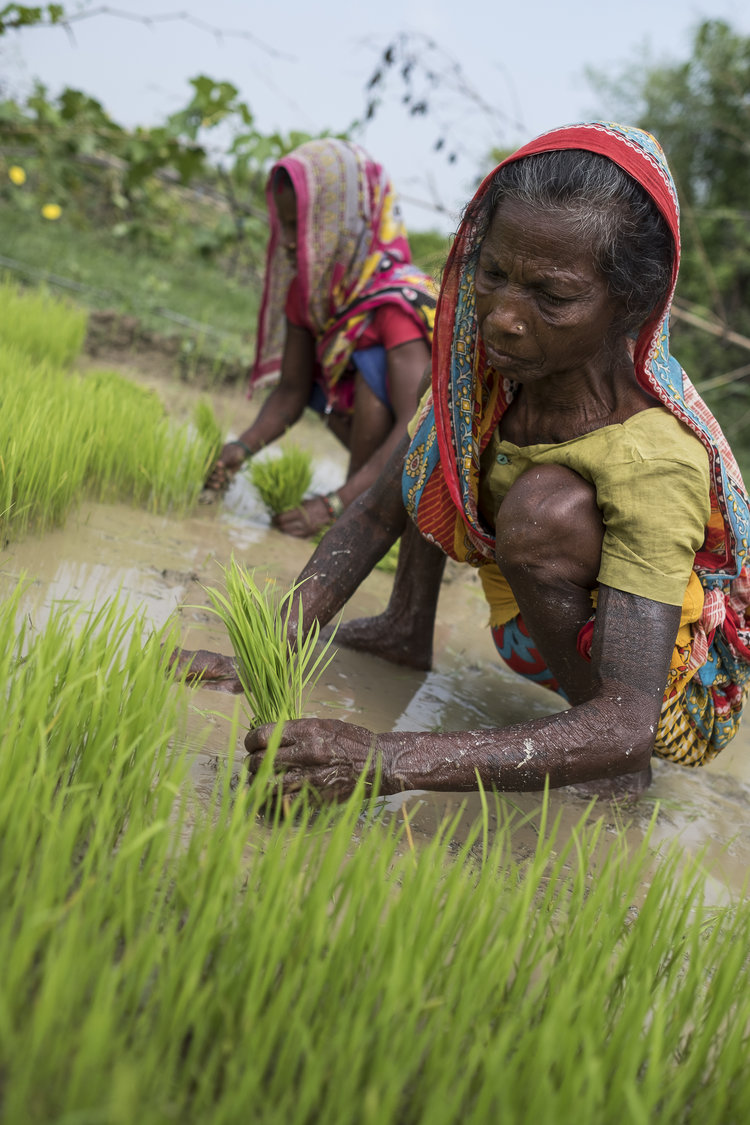Component 5
Analytical studies

Objective
To fill critical knowledge gaps on priority topics that require further investigation to support overall project objectives.
Key Activities
Identifying priority areas for analysis
Undertaking analysis of primary and secondary data
Undertaking critical modeling work
Major areas of research:
Models for access to mechanisation
The role of women in agriculture
The political economy of the food trade in South Asia
Water availability, including local level management and regional implications of farm scale water savings
Exploring the energy-water-food nexus in West Bengal
Lead
ACIAR management team (RPM WaC, PM, PC)
Key Partners
-
CIMMYT and existing SRFSI partners
-
University of Adelaide
-
Murdoch University
-
The Asia Foundation
-
SaciWATERs
-
Nalanda University
-
CSIRO
-
International Water Management Institute (IWMI)
Delivery Mechanisms
Critical topics were identified from SDIP Phase 1 work, and from components 2, 3 and 4. A series of individual projects were commissioned to address these critical topics.
Commissioned Projects
Value chain and policy interventions to accelerate adoption of zero tillage in rice-wheat farming systems across the Indo-Gangetic Plains
Adelaide University’s project examined how the adoption of ZT seed drills (including the Happy Seeder) can be accelerated to help reduce the prevalence of stubble burning and boost sustainable food production and water security in NW India and the EGP.
Political economy analysis of cross border agricultural trade in Bangladesh, India and Nepal
This project from The Asia Foundation aimed to frame the political economy of rice trade by casting light on key variables that should be considered both in the policy formulation process and interventions by external actors.
Understanding women’s role in agriculture in the EGP: The macro and micro connections
This SaciWATERs project focused on understanding the role of women in agriculture in the EGP, and to make connections between macro and micro data sources to explain variations.
Pilot project on commercialisation of smallholders’ CA-based planters in Bangladesh
This project from Murdoch University aimed to advance the CA-based mechanization program for smallholders in Bangladesh.
Aquifer characterisation, artificial recharge and reuse of suddenly available water in south Bihar
This Nalanda University project assessed recharge capacity, benefits derived, and key social factors that help adoption of local scale Aquifer Storage and Recovery technology by small-holder farmers in South Bihar.
The regional hydrological impact of farm-scale water saving measures in the EGP
This CSIRO project provided a better understanding of and options for sustainable groundwater management for irrigated crop production in the EGP.
Unravelling the water-energy-food nexus in West Bengal
This IWMI project explored the impacts on the agriculture and groundwater sectors as a result of electricity reforms that have increased access to groundwater irrigation in West Bengal.
Role of groundwater in agrarian change in West Bengal and Bangladesh: A comparative analysis
This IWMI project explored the trends in agricultural development since the 1990s in Bangladesh and West Bengal, and explored the underlying drivers and emerging themes. Both cases show that the rise and fall in agricultural growth is intricately tied with trajectory of groundwater irrigation.
Farmers’ Hubs as a vehicle to deliver solutions and services to farming communities
CSIRO and BAU led this project focused on one initiative designed to help deliver services to farmers and their communities in Bangladesh. Farmers’ Hubs were developed by the Syngenta Foundation for Sustainable Agriculture (SFSA) and are designed to provide services such as the supply of inputs including seedlings, and access to machinery as a commercial business. The project documented how hubs are being used to improve access to new agricultural technologies for farmers and identify opportunities for them to be used more effectively.
Pilot Study on Knowledge Transfer Mechanism for Effective Agriculture Extension Service Deliverable to Farmers in Mahotari and Dhanusha districts of Nepal
Establishment of Agricultural Knowledge Centres (AKC) were an important institutional innovation when the federalised system of governance system took its roots in Nepal. In Province 2, there are five AKCs but they are detached from the wider system both vertically and horizontally in terms of knowledge gathering and knowledge dissemination. A collectively owned and vibrant set of AKCs can help accelerate agriculture modernisation, through better coordination between existing agriculture development, research and extension institutions learning from the evolutionary process from India’s Krishi Vigyan Kendras (KVKs). This study explored the potential of AKCs as an effective vehicle to support food security and sustainable food systems in the context of the COVID-19 crisis, to share the knowledge and learning to feed into the agriculture sector policy of provincial and municipal governments.